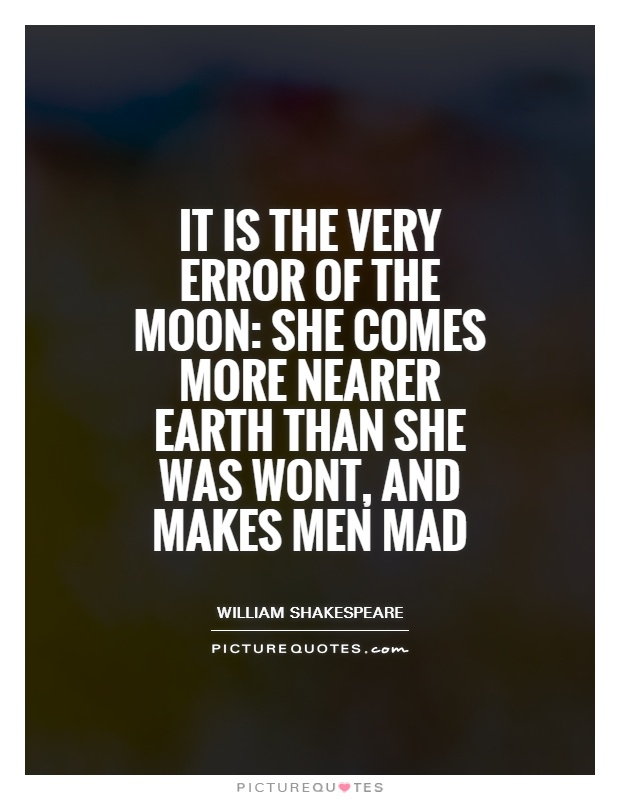It is the very error of the moon: She comes more nearer Earth than she was wont, and makes men mad

It is the very error of the moon: She comes more nearer Earth than she was wont, and makes men mad
In William Shakespeare's play "Othello," the character Othello utters the line, "It is the very error of the moon: She comes more nearer Earth than she was wont, and makes men mad." This line is spoken by Othello in Act 5, Scene 2, as he reflects on the events that have led to his tragic downfall.The moon has long been associated with madness and irrational behavior in literature and folklore. In Shakespeare's time, it was believed that the moon's influence could affect human behavior, causing madness and irrationality. Othello's reference to the moon in this line suggests that he believes his own actions and decisions have been influenced by external forces beyond his control.
Othello's use of the word "error" to describe the moon's proximity to Earth suggests that he sees this as a mistake or a deviation from the natural order of things. The idea that the moon is coming closer to Earth than usual implies a disruption in the natural balance of the universe, leading to chaos and madness among men.
The moon has often been associated with femininity and emotions in literature, and Othello's reference to the moon in this context may suggest that he sees his own emotions as being out of control. The idea that the moon's influence can make men mad implies that Othello believes he has been driven to madness by his own emotions and desires.
Overall, Othello's line about the moon reflects his belief that external forces have played a role in his tragic downfall. By attributing his actions to the influence of the moon, Othello suggests that he is not entirely responsible for his own fate. This line highlights the theme of fate and destiny in the play, as Othello grapples with the idea that his actions may have been predetermined by forces beyond his control.












 Friendship Quotes
Friendship Quotes Love Quotes
Love Quotes Life Quotes
Life Quotes Funny Quotes
Funny Quotes Motivational Quotes
Motivational Quotes Inspirational Quotes
Inspirational Quotes